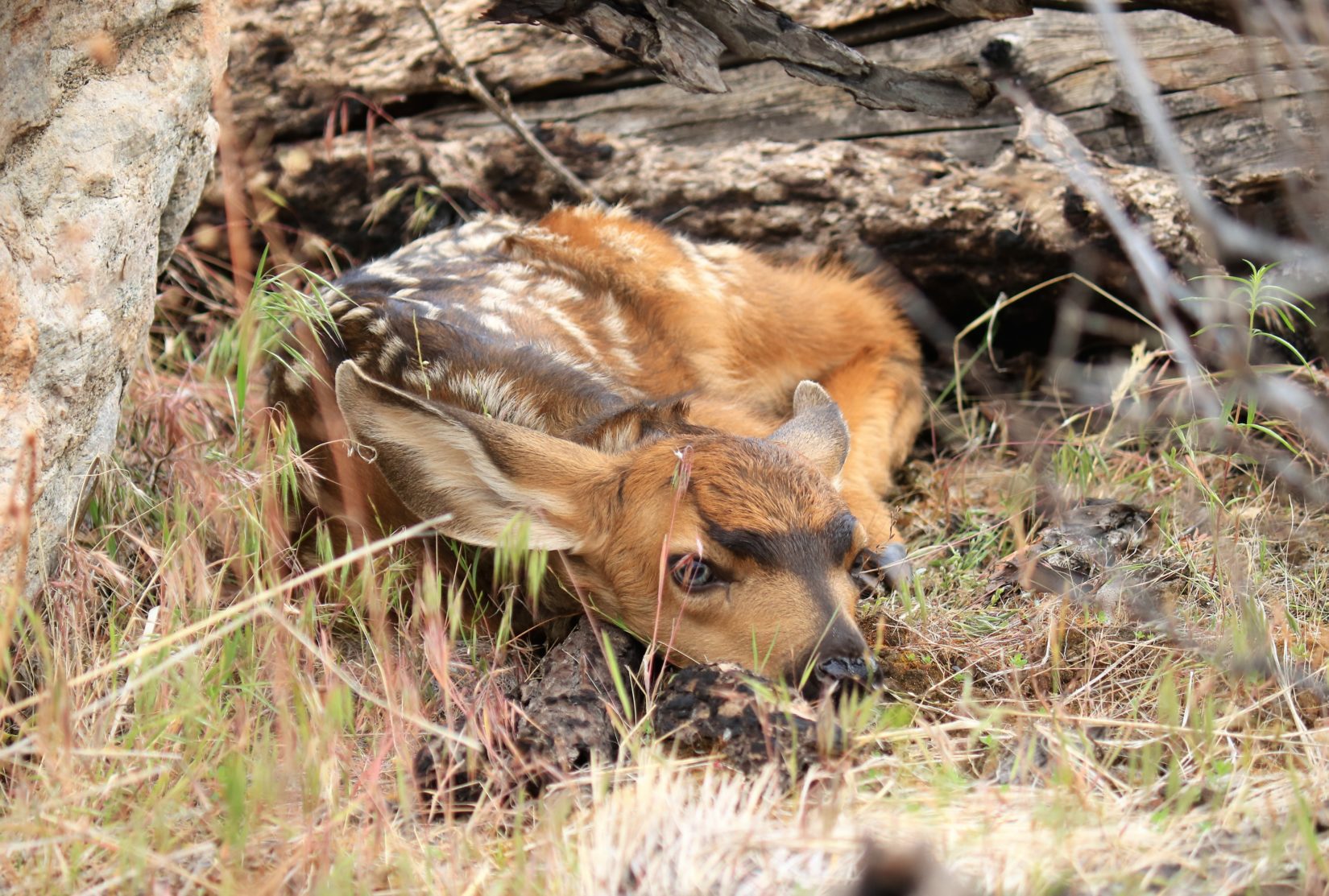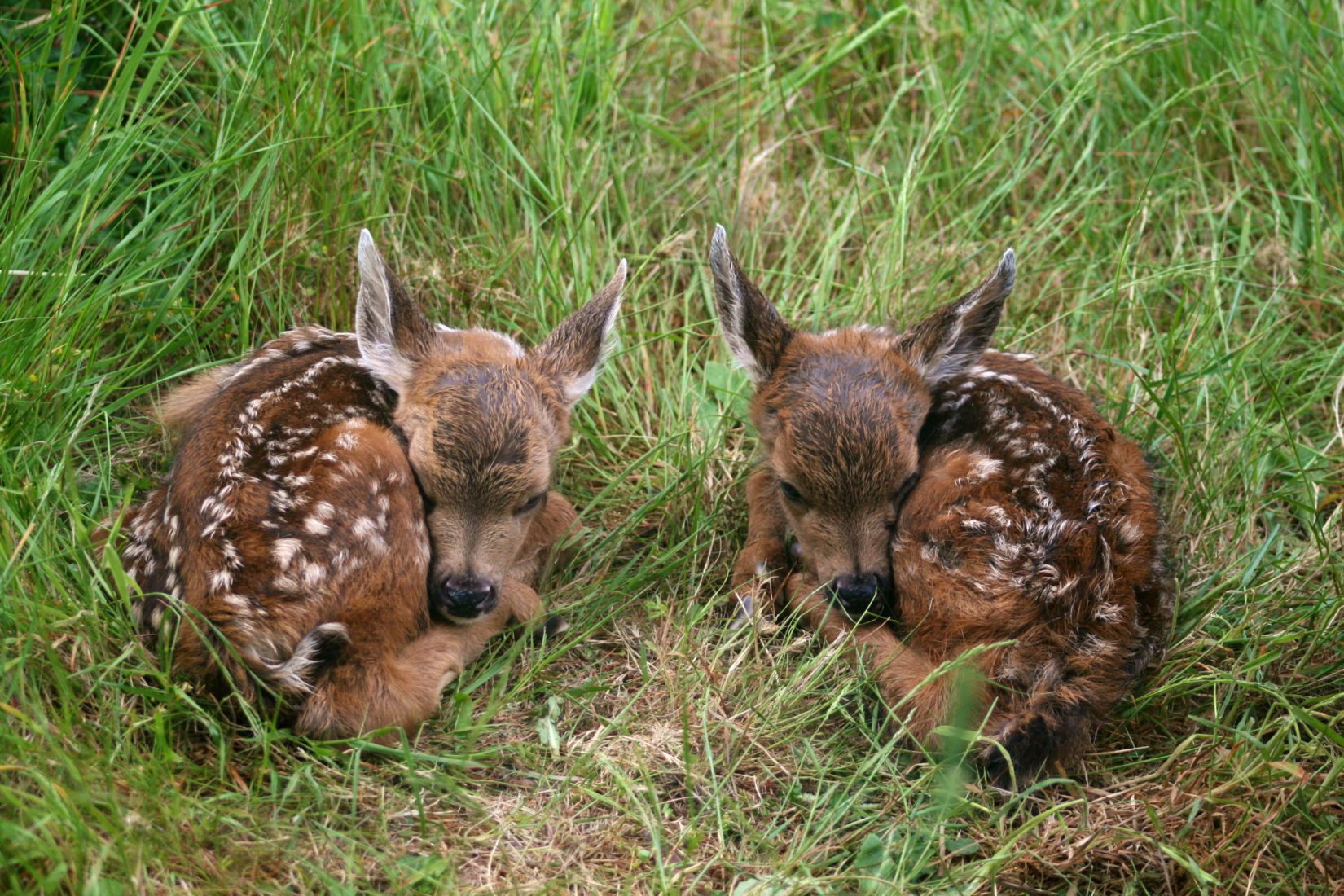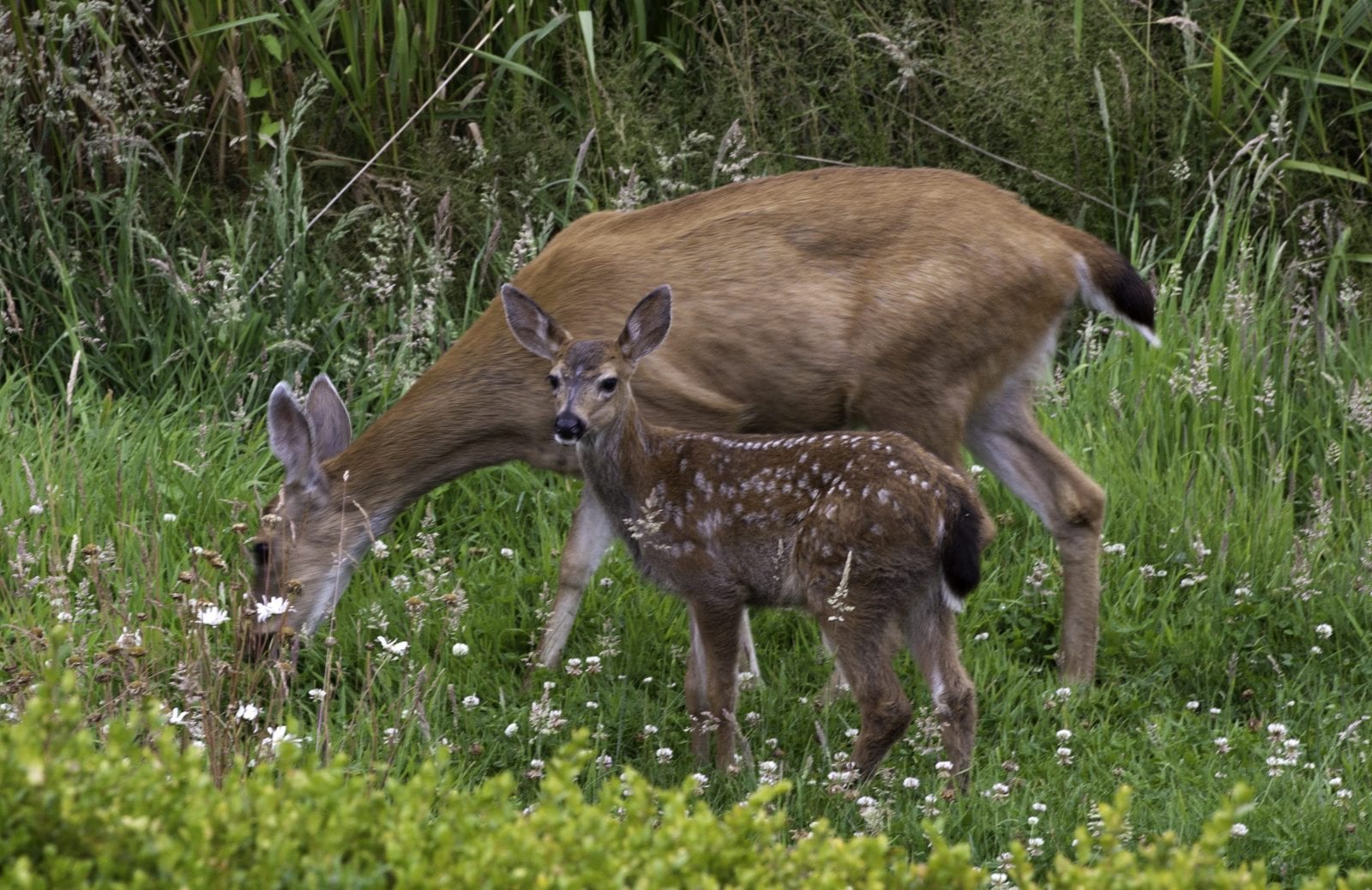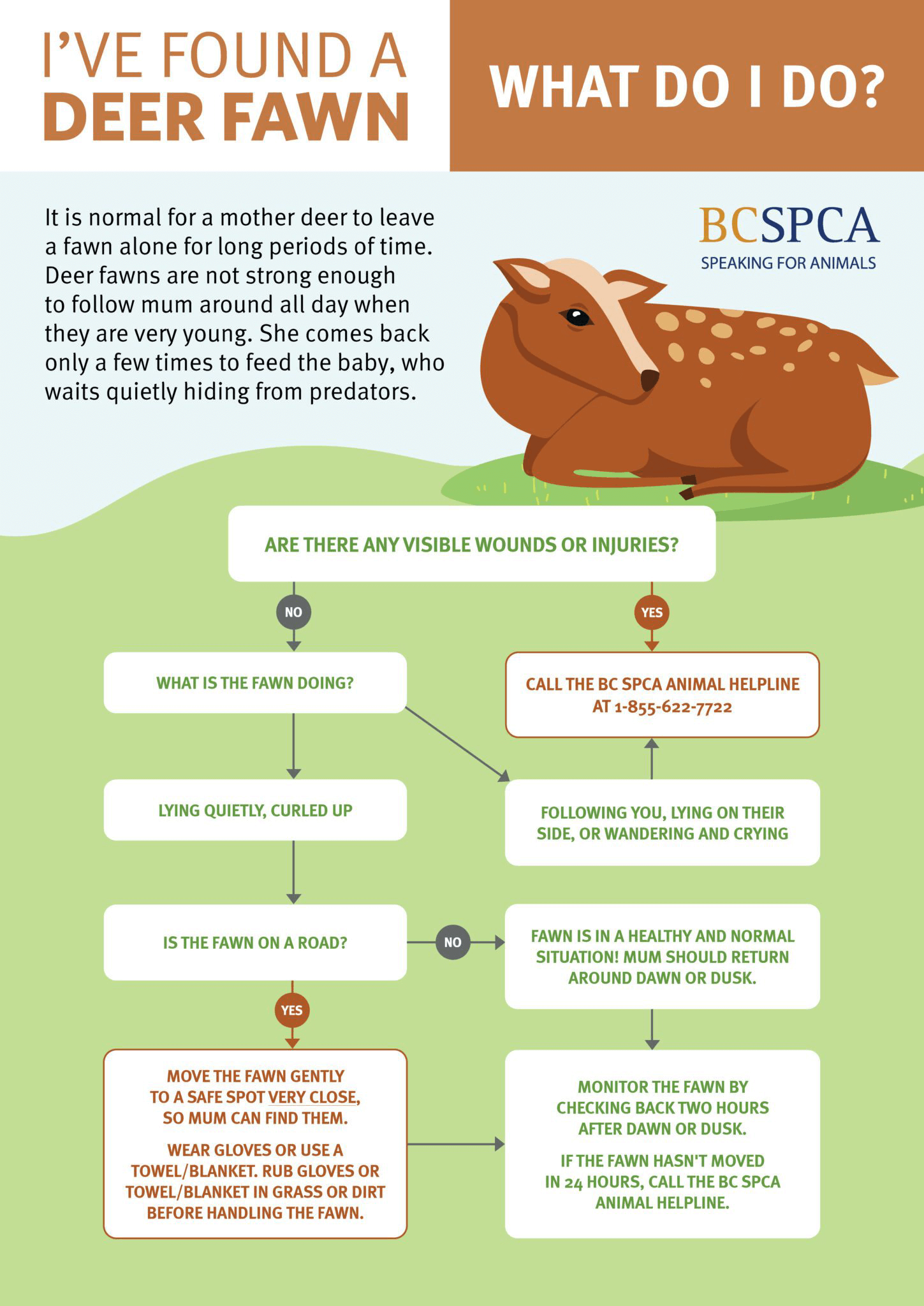Is this fawn an orphan, or simply waiting for mom to come back? Not every deer fawn found alone is an orphan! It is normal for a mother deer to leave a fawn alone for long periods of time. She comes back only a few times a day to feed her baby, who waits quietly while hiding from predators.

Every May and June, the BC SPCA receives calls about “orphaned” deer fawns found hiding in backyards, parks or meadows. Sometimes well-meaning people accidentally bring these healthy fawns to Wild ARC, thinking that they are rescuing them.
The best days for our staff are when these babies stay with their mothers in the wild, but the next best days are when they can be reunited with their mothers. This was the case for one fawn found alone in a backyard, and a deceased deer (thought to be the mother) was reported nearby. When staff found out the adult deer was actually a male, they sprang into action to get the fawn back home. It wasn’t long before mom came looking for her baby, and the pair were successfully reunited.
Reunions are a joy to watch, but they’re not an easy feat. Reuniting a fawn with their mother takes a lot of careful planning, coordination and monitoring to ensure success. It’s best if healthy fawns avoid this situation altogether — you can help by learning to tell the difference between a healthy fawn and a fawn in need.
If you find a fawn lying quietly, hiding in grass or brush, don’t disturb them. Fawns can’t follow their mothers for the first two weeks, so they spend nearly all their time alone. Mom comes back generally around dawn and dusk to nurse them. Fawns are only cat-sized when born, so it’s normal for them to look small and weak. If you’re worried the fawn has been abandoned or orphaned, check on them from a distance over the next 24 hours. The mother will likely return and move the baby to a new spot. Make sure to keep any pets away from where the fawn is hiding.
You can help spread the word to prevent “fawn-napping”! Print our card on what to do if you find a deer fawn (PDF).

How will I know if they need help?
Sometimes fawns do need our help! Hiding quietly is their best strategy to avoid attracting predators, so if a fawn is crying or wandering, that means they may be in trouble.
You’ll need to contact a wildlife rehabiliator if the fawn:
- hasn’t moved from their hiding spot in 24 hours
- is crying continously
- is wandering aimlessly
- looks injured
- follows you
- is in an unsafe location
If the fawn needs help, contact your local wildlife rehabilitator or the Conservation Officer Service at 1-877-952-7277 (RAPP) to help you assess the situation. You can also contact our Animal Helpline at 1-855-622-7722 for advice.
Can I move the fawn if they’re in a dangerous spot? Will the mother abandon fawns that smell like people?
Consult a wildlife rehabilitator before you move a fawn. Sometimes when mom is crossing the road trying to move her baby, a car could spook her back into the forest, while the fawn lays down to hide. A wildlife rehabilitator can move the fawn, or advise you to move them gently to a safe spot very nearby so they don’t get hurt. Wear gloves or a towel to minimize human scent. You can even rub the gloves or towel in grass or dirt to help mask the smell. Just like us, animal moms are very attached to their babies. Mothers won’t abandon babies just because they smell like people, but minimizing scent will make them feel more comfortable.
Sometimes healthy fawns will end up in locations that seem “weird” to us. For example, mom might think beside a dumpster or wheeled garbage bin is a nice quiet space early in the morning. But later in the morning, these locations become very busy and full of people! Contact a wildlife rehabilitator for advice — put up a sign to tell others to keep their distance, and keep pets on-leash and far away.
Don’t try to catch or care for a deer fawn yourself — it is illegal to keep wildlife without a permit in B.C.


